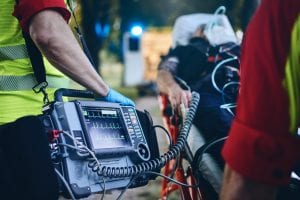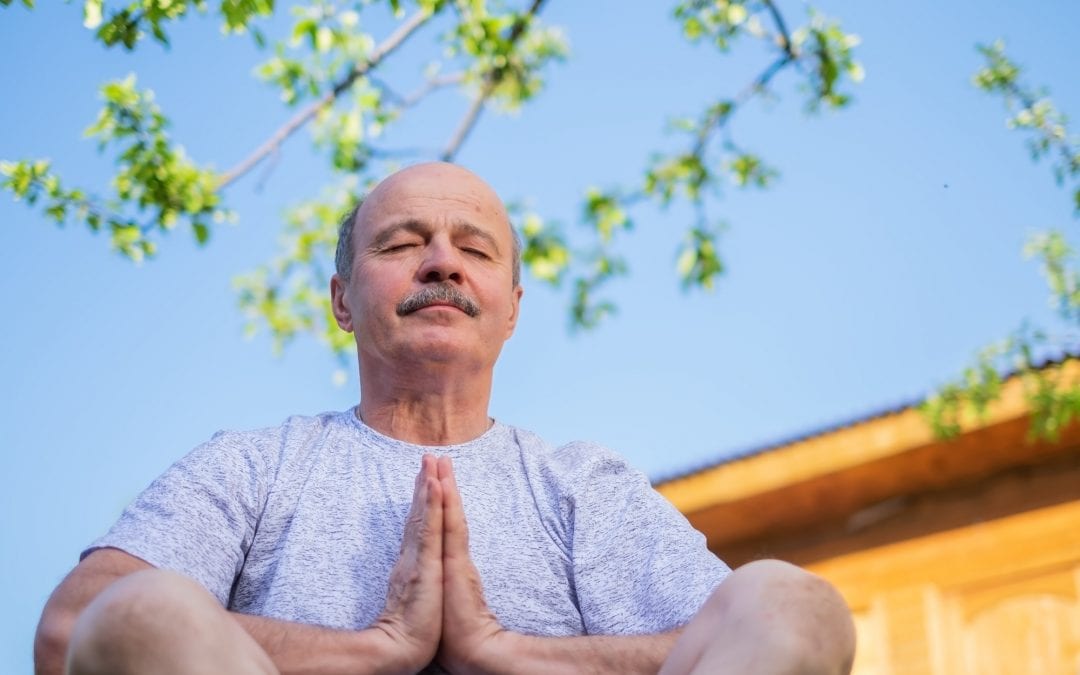According to researchers from Ohio, mindfulness could help with blood pressure
A Quick Look
The study was published in Psychosomatic Medicine: Journal of Biobehavioral Medicine.
It shows that patients with borderline high blood pressure who went through a mindfulness-based stress reduction (MBSR) program were able to successfully reduce their blood pressure levels.
The Silent Killer
According to the Centers for Disease Control and Prevention (CDC), 1 in 3 adult Americans have hypertension (high blood pressure). In addition, 68 million adult Americans have hypertension, many of them being unaware they have it. What’s more, hypertension presents no warning signs or symptoms.
 According to researchers from Kent State University, borderline high blood pressure (prehypertension) affects 30% of Americans. As a result, prehypertension is attracting medical attention. In addition, prehypertension has associated risks of cardiovascular disease. So, patients with prehypertension may be prescribed medication as treatment. However, researchers say MBSR may be a useful alternative to medication.
According to researchers from Kent State University, borderline high blood pressure (prehypertension) affects 30% of Americans. As a result, prehypertension is attracting medical attention. In addition, prehypertension has associated risks of cardiovascular disease. So, patients with prehypertension may be prescribed medication as treatment. However, researchers say MBSR may be a useful alternative to medication.
How to Reduce Stress
MBSR is becoming increasingly popular in the medical community.
Prof. Jon Kabat-Zinn was one of the first to see the benefits. For example, he explains:
- He devised a behavioral program to help people cope with stress and be more at ease
- He incorporated techniques like meditation, mind-body exercises, and gentle yoga
- MBSR has Buddhist roots
According to Joel W. Hughes, Ph.D. and lead author of the study:
- MBSR is an increasingly popular practice
- May alleviate stress
- Might treat depression and anxiety
- May treat certain health conditions
The Study
The details:
- 56 men and women
- Diagnosed with prehypertension
- They were not taking drugs
- Group was randomly divided into two groups
- One group was assigned an MBSR program
- The other group received lifestyle advice and a muscle-relaxation activity

The MBSR group sessions went as follows:
- 2.5-hour sessions for 8 weeks
- An experienced instructor guided them
- 3 main types of mindfulness training
- Body scan exercises (drawing awareness to particular parts of the body)
- Sitting meditation
- Yoga exercises
- Group was also encouraged to practice these at home
Then, researchers compared blood pressure readings between both groups.
The Results
MBSR group results:
- Lower readings for both systolic and diastolic blood pressure
- On average, the systolic reading decreased by almost 5 mm Hg
- On average, the diastolic reading decreased by almost 2 mm Hg
- Mindfulness could help with blood pressure
Control group results (lifestyle advice):
- Less than 1 mm Hg drop in systolic pressure
- Increase of 1 mm Hg in diastolic pressure
As a result, there was no significant difference in blood pressure between the groups in ambulatory blood pressure monitoring. This is where blood pressure is monitored over 24 hours.
Conclusion
In conclusion, Prof. Hughes concludes that:
- Blood pressure reductions were similar to many drug interventions
- They may potentially be enough to reduce the risk of stroke or heart attack
- MBSR may be an appropriate complementary treatment
- This is for blood pressure in the prehypertensive range
In short, further research is necessary to determine if the blood-pressure-lowering effects can be maintained over a long period of time.

